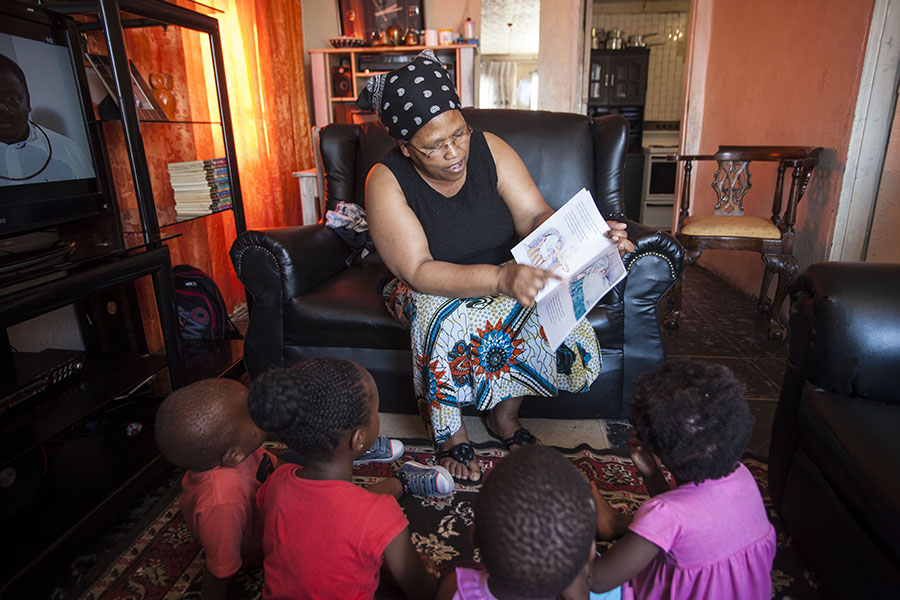School is not the only place where teaching and learning can happen. What families do at home can offer children their first and arguably one of the most important literacy lessons. Find out how you can help your children to read and write at home with this series of family-literacy articles from Nal’ibali, the national reading-for-enjoyment campaign.

Making Literacy A Part Of Your Home
With children out of school, many caregivers are concerned about their children’s education. The good news is that spending time teaching your children to read, or to love reading, is a valuable investment in their education, as reading underpins all school learning. It can also easily be done at home. Here are some fun ideas to help make literacy an enjoyable part of daily family life.
Create a story routine
Set aside a time every day to read and/or tell stories. Many children enjoy listening to stories at bedtime, but some children may find it easier to concentrate at other times in the day. Choose a time that works best for all of you.
Tell stories aloud
Tell your children stories, sing songs, and recite poems you know. This stimulates their imaginations and helps develops their vocabulary. Listen to their stories too and remember to show your appreciation! Remember, it’s good to repeat favourite stories!
Share books
Spend 15 minutes a day reading storybooks aloud with your children. Make it a relaxed and enjoyable time. When your children realise that stories can be found in books, and that stories are fun and enjoyable, they will try to read for themselves. If you have a home library such as a bookshelf, involve your children in choosing which book to read. Letting them select the story will help build their confidence to becoming independent readers.
Be a role model
Children learn more from watching what you do than from what you tell them to do! Let your children see you writing and reading for pleasure regularly. When they realise that reading and writing are useful and powerful tools, they will start using them into their own lives too.
Use your home language
Children should read and write in their home language first as a strong foundation in their mother tongue is the key to all successful learning – including learning to read and write − because to learn well, children need to understand well.
For more information about the Nal’ibali campaign, or to access children’s stories in a range of South African languages, visit www.nalibali.org. You can also sign up for free reading-for-enjoyment training though Nal’ibali’s FUNda Sonke loyalty programme at www.nalibali.mobi.
First published on Parent24.com
